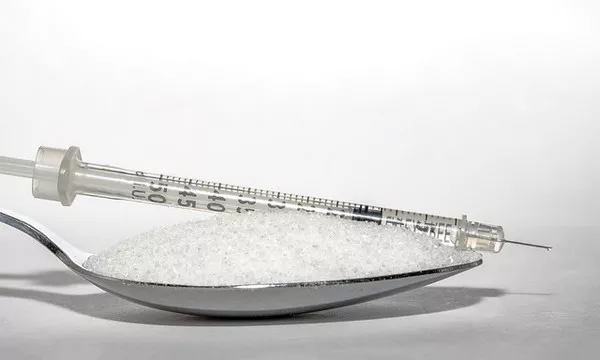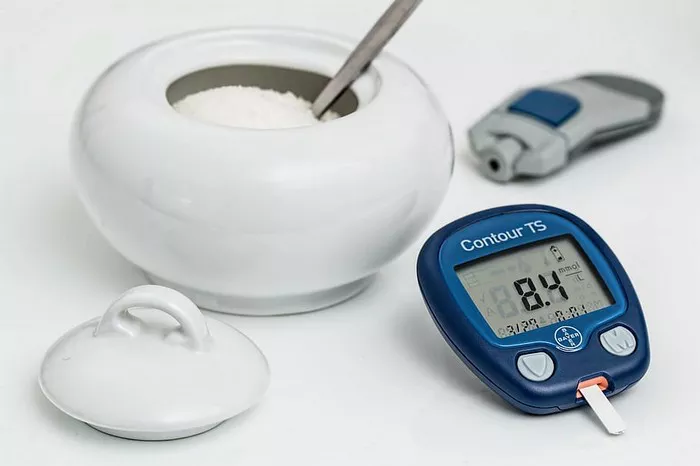Insulin is a crucial medication for managing diabetes, but it often has a frustrating side effect: weight gain. People with type 1 and type 2 diabetes commonly experience weight gain when prescribed insulin, though this is not inevitable, and with the right strategies, some can successfully manage or even lose weight.
Insulin’s Role in the Body and Weight Gain
Insulin, a hormone naturally produced by the pancreas, helps the body convert food into energy and regulates blood sugar. One of its primary functions is facilitating fat storage, which can lead to weight gain when excess calories are consumed. When blood sugar drops or appetite increases, insulin encourages the storage of fat instead of burning it. This can cause some people to gain weight, especially when they consume more calories than they burn.
Type 1 Diabetes and Weight Gain
Historically, weight loss was more common among people with type 1 diabetes due to uncontrolled blood sugar levels. However, with better control over blood sugar, weight gain has become a more prevalent issue. Advances in treatment for type 1 diabetes, including insulin therapy, have reduced unintended weight loss, causing individuals with type 1 diabetes to experience similar weight trends as the general population.
Moreover, people with type 1 diabetes who are overweight or obese may experience insulin resistance, which makes blood sugar management more difficult and can even lead to “double diabetes” (a combination of type 1 and type 2 diabetes). Fear of hypoglycemia (low blood sugar) can also lead some individuals to overeat to prevent dangerous drops in blood sugar, contributing to excess calorie intake and weight gain.
Type 2 Diabetes and Weight Gain
Excess weight is a significant risk factor for type 2 diabetes, so people with this condition may be concerned that insulin could exacerbate weight gain. However, insulin is not the only diabetes medication that leads to weight gain. Medications like sulfonylureas are also linked to weight gain. However, weight gain can often be mitigated through careful insulin dosing, meal planning, and regular physical activity.
Diabetes Medications That Promote Weight Loss
In recent years, medications like GLP-1 receptor agonists (e.g., semaglutide) and SGLT2 inhibitors (e.g., empagliflozin) have gained popularity in the management of type 2 diabetes. These drugs not only help manage blood sugar but also promote weight loss by reducing appetite and increasing fullness. These medications have become preferred options for people with type 2 diabetes, especially those who are obese, and can sometimes be used alongside insulin to counteract its weight-gaining effects.
Preventing Weight Gain on Insulin Therapy
Although insulin can cause weight gain, it is not inevitable. By carefully adjusting insulin doses and maintaining a healthy lifestyle, it is possible to prevent excessive weight gain. Here are some strategies to help manage weight while using insulin:
Eat a Nutrient-Dense Diet: Focus on a balanced diet with plenty of fiber, protein, and healthy fats, while limiting refined carbohydrates. This can help you control blood sugar levels and reduce the amount of insulin required.
Exercise Regularly: Regular physical activity improves insulin sensitivity, allowing for smaller doses of insulin and better blood sugar control. Aim for at least 150 minutes of moderate-intensity exercise per week.
Consult Your Doctor: If you are concerned about weight gain due to insulin, discuss other medication options with your healthcare provider, such as GLP-1 receptor agonists or SGLT2 inhibitors, which may help with weight loss.
In conclusion, while insulin therapy is an essential part of diabetes management, it can contribute to weight gain. However, with proper strategies, including diet, exercise, and medication adjustments, weight gain can be managed or even avoided. Always work closely with your healthcare team to tailor your treatment plan to your needs.
Related topics:
Study Shows Cutting Calories Helps Pregnant Women with Diabetes Avoid Insulin
Maternal Hypertension and Diabetes Increase Cardiovascular Risks in Offspring
Diabetes Accelerates the Spread of Antibiotic-Resistant Bacteria, Study Finds



























